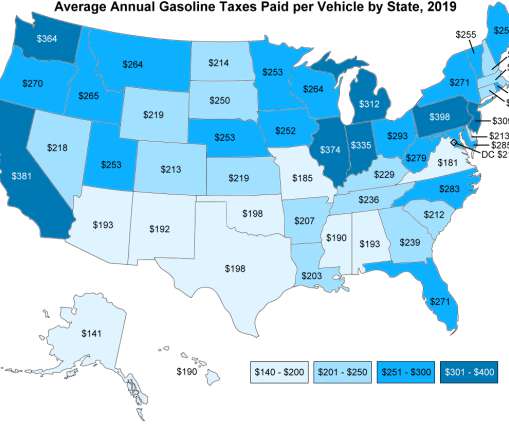DOE: Average annual gasoline taxes paid per vehicle, by state, 2019
Green Car Congress
DECEMBER 3, 2019
The Federal tax on gasoline is 18.4 cents per gallon, and each state has a gasoline tax, ranging from 8.95 Since taxes are charged on a per-gallon basis, someone with a more efficient vehicle will pay less in taxes over the course of a year. Based on a vehicle with an average fuel economy of 22.3





















Let's personalize your content